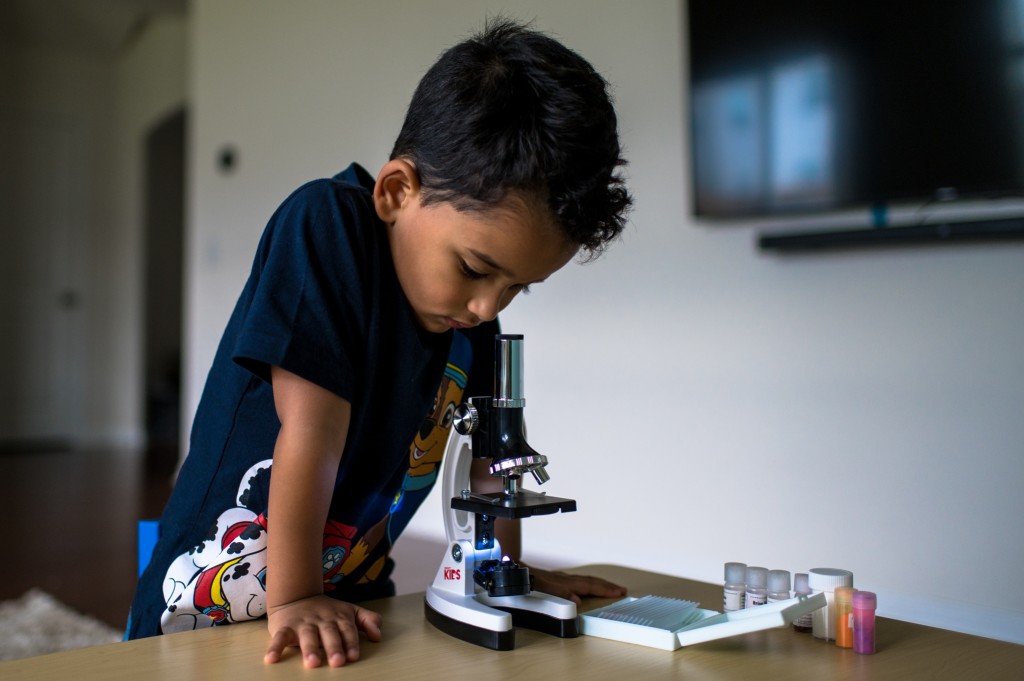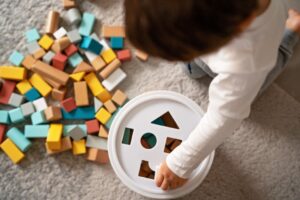STEM stands for science, technology, engineering, and math, and you may have heard of it in reference to your older child’s curriculum. Did you know that STEM can be applied to your toddler’s regular play, too?
Why is STEM Important?
STEM is important —perhaps even essential — because the sciences play an increasingly important role in the U.S. economy and the sustainability of our existence on Earth! STEM education encourages a love for math and science that creates critical thinking skills required for the next generation of scientists and innovators.
Why is STEM Important for Toddlers?
Toddlers are curious by nature. All day long, your toddler is conducting experiments. You just haven’t realized it! Every time you serve a new food, your toddler is:
- Observing – “What is this new food mommy served?”
- Formulating a question – “Do I like this? Should I eat it or not?”
- Hypothesizing – “Yes, I believe it’s food.”
- Performing the experiment – Your child tries the food.
- Analyzing – “EW. It tastes yucky!”
- Drawing conclusions and sharing the results – Your child spits out the chewed-up food and hands it to dad.
This process repeats through the average days of toddler-hood and happens organically on its own, as long as you provide a safe environment in which they can explore and play. A parent’s job is to create a safe environment for natural toddler exploration and curiosity and to create natural learning experiences that lead to a thirst for knowledge.
Toddler age is a great time to introduce STEM and capitalize on their curiosity and love of exploring. The best way to begin is by inviting your toddler to use her five senses when they explore.
- How does it look?
- How does it smell?
- What do you hear?
- How does it feel?
- How does it taste?
STEM Activities for You and Your Toddler
Try this fun, taste-safe cloud dough recipe!
You will need:
- 4 cups of flour
- 1 cup of coconut oil
- Optional food dye
Mix all ingredients in a bowl and then play! Don’t forget to talk with your child about the senses. You can also incorporate other experiments into this activity. Ask your child, “What do you think will happen if we pour water into our cloud dough?” Talk about every step of your experiment.
The great thing about STEM for toddlers is that it encourages them to explore, and lays the foundation for a love of science, but it’s also a great bonding opportunity for your relationship.
Some other ideas for introducing STEM into your daily routine include child-safe tools for your toddler to practice using. STEM tools could be:
- Kid-safe scissors
- Kitchen tongs, great for helping to build hand strength and fine motor skills
- Child’s magnifying glass
- Pipettes and water
- Ramps and toys with wheels or balls
- Paint, markers, and crayons
Don’t forget when you’re introducing new ways to learn that a child’s work is play. Remove the pressure you might be inclined to put on your child and just let them have fun. Learning comes so naturally to children; all we have to do is provide safe opportunities.


